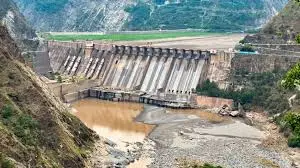First time, Pakistan says willing to discuss Indus Waters Treaty terms

In a major diplomatic shift, Pakistan has publicly expressed its willingness to discuss the Indus Waters Treaty (IWT) terms with India. This is the first time such a statement has been made. The development could ease long-standing tensions over river water sharing.
What is the Indus Waters Treaty?
The Indus Waters Treaty was signed in 1960 with World Bank mediation. It governs the sharing of six rivers between India and Pakistan. Pakistan controls the western rivers—Indus, Jhelum, and Chenab. India controls the eastern rivers—Ravi, Beas, and Sutlej. Despite its strong legal framework, disputes over water use have continued for decades.
Why Pakistan’s Statement Matters
Pakistan has often accused India of violating the treaty by building projects on the western rivers. Until now, Islamabad avoided direct talks. The new willingness to discuss marks a possible change in policy.
Experts believe this shift could be due to increasing water scarcity, climate change impacts, and the need for cooperative water management. Both countries face rising demand for water in agriculture, industry, and households.
Potential Impact on India-Pakistan Relations
Water sharing has been a sensitive issue. Dialogue on the treaty might improve trust and ease broader tensions. It could create a platform for cooperation on other conflicts.
However, India insists the treaty is binding and rejects renegotiation calls. It accuses Pakistan of trying to internationalize the dispute. Both sides need honest talks to find common ground.
Challenges in Negotiations
There are major hurdles ahead. These include disagreements over water flow data, dam projects, and usage rights. Political opposition in both countries could block progress. Transparency and confidence-building will be key to success.
Looking Ahead
South Asia faces growing water stress due to population growth and climate change. Cooperation on the Indus basin is crucial for regional stability. Pakistan’s openness to discuss the treaty offers hope for progress.
Experts will watch closely if this new approach leads to lasting peace and water security in one of the most water-stressed regions of the world.






